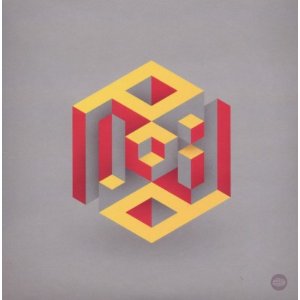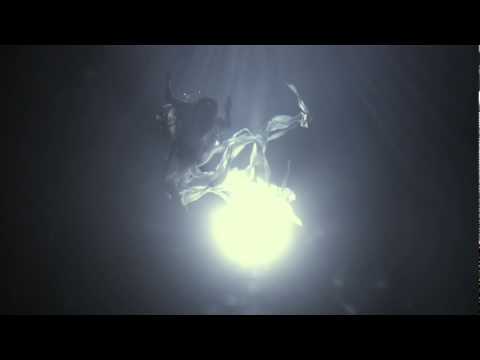So there you’ll be, discussing electronic music with likeminded nerds as you do, when some unsuspecting soul dawdles straight into the semantic minefield called ‘the IDM argument’. This is the Godwin’s Law of electronica: Once invoked, meaningful commentary ceases, dissolving into outcry, malaise and general pedantry all round. It’s true, “Intelligent Dance Music” is one of the worst genre terms to exist in a world where “pronk” and “rape gaze” are actual things. It’s clumsy for a start – “IDM” sounding every bit like the acronym for a faceless tech-corp run by jowly people with big blue heads. Secondly – and I speak from experience here – you can’t really dance to much of it without looking like a demented ostrich doing the Step Master challenge. More prominent in the IDM argument though, is that this tag assumes a condescending stance towards other styles, implying other dance music is stupid and therefore less worthy. It allows tech-geeks to lord it over clubbers and ravers because, cuh, those Norms still dance to music in 4/4. Not a good look, geeks.
But now we’re stuck with the problem of how to refer to those niche acts whose 1995-2002 heyday was championed by labels like Planet-Mu, Skam and of course Warp Records – the brand synonymous with such bedroom heroes as Aphex Twin and Squarepusher. A number of alternatives have been posited: Rephlex Records suggested ‘Braindance’, which although easier to say isn’t really the kind of thing you’d ever want to say, especially when describing your music tastes to prospective lovers. ‘Electronica’, ‘leftfield’ are both too general and could refer to pretty much anything from Moby to Add N To (X). Other suggestions have come and gone with increasing ridiculousness. Unfortunately it seems, like many other genre names, IDM has held fast as the only viable shorthand for this area of music. But what, other than an uncomfortable catchment term, links all these acts in the first place? Why place, say, Boards of Canada and μ-ziq under the same umbrella when neither really sound that much alike?
To go some way to explain this, I’d like to compare the career trajectories of two of the scene’s prime exponents: Sean Booth and Rob Brown of Autechre and Plaid’s Ed Handley and Andy Turner. Both duos met and bonded over hip-hop and graffiti culture at school, were beguiled by the breaking rave scene in the early 90s before moving on to more experimental climes soon after. By the time the two acts (Plaid at this point working with Ken Downie as the Black Dog collective) were snapped up for Warp’s Artificial Intelligence series, it was clear that a new subspecies of rave was being formed. Autechre’s Incunabula and the Black Dog’s Bytes suggested a kind of post-techno (taken in the same way as post-punk or post-dubstep): cerebral electronic music for the home stereo rather than the dancefloor. With this in mind, it’s no surprise the bogey-term Intelligent Dance Music was eventually coined. Subsequent releases from the two acts challenged conventional notions of dance music; experimenting with sounds, textures and structures that wouldn’t necessarily fit into a club or rave context. By the time the Black Dog parted ways, (Plaid reforming as a duo circa 1997), both bands had established themselves as two of the most forward-thinking acts in electronic music. Yet both insist that theirs is simply an extension of the hip-hop and b-boy music of their youths.
Where the similarities between Autechre and Plaid begin to dovetail, is in their approach to composition. Autechre always sought to harness the spirit of the dancemat through pure electronic alchemy. Albums like LP5 and Confield saw the duo experimenting with generative ideas, using algorithmic programming to create an increasingly fractal take on breaks and hip-hop. Autechre’s goal, it seemed, was to allow the machines to do the talking; to make them sentient enough to compose the music almost automatically. Listening to Autechre is like trying to decipher the complex musical impulses of someone from another dimension; or how an abstract light pattern might express itself if only it could. Any semblances of human emotion, classical beauty, corporeal funk are incidental, happenstance, but it’s these tiny flourishes that seem to affect listeners most. Over time, the musical brain becomes accustomed to these strangely soulful melodies and physically deviant grooves. Only upon retuning the ears does it stop sounding alien and start making sense.
Plaid, on the other hand, represent the opposite side of the IDM coin. No less the innovators, Plaid at their peak had an uncanny ability to conjure tangible, whimsical images in the mind. Where Autechre were left-brained, mathematical, rule-based, Plaid’s sensibilities couldn’t be more human. There was never anything chaotic or random in the way their rhythms and melodies were sculpted, as though by Michelangelo himself. If Autechre is hip-hop for pan-dimensional beings, Plaid’s is for cats and dogs, haunted houses, bubble machines and Smash robots. Albums like 1999’s excellent Restproof Clockwork encouraged vivid emotions – primary coloured concepts fixed squarely on the brain’s neocortex. A single track could take you on a narrative rollercoaster, morphing from manic glee to pensive melancholia. It was this that allowed Handley and Turner to work with guest vocalists such as Björk and Mara Carlyle, the visual artist Bob Jaroc, and Japanophile filmmaker Michael Arias– collaborations Autechre would have found inconceivable.
2001 marked a glass-ceiling year for Warp Records and the IDM scene in general, with a flurry of essential releases from Plaid, Autechre, Aphex Twin, Prefuse73 and many more. Sadly, Warp founder Rob Mitchell was diagnosed with cancer and died later the same year. As if to reflect this, IDM went into steep decline, never fully recovering from the blow. Smaller labels suffered from a dearth of innovators while Warp began signing a number of non-electronic acts including Maximo Park and Born Ruffians, not to mention a major reissue campaign in a bid to stay afloat. These mercenary tactics, though perhaps necessary from a fiscal point of view, did nothing to revitalise an ailing and increasingly unfashionable scene. Autechre’s subsequent records, the difficult Draft7.30 and Untilted, received a lukewarm reception. Plaid in the meantime released Spokes, a meandering record few would regard as their best work, before withdrawing into the aforementioned hinterland of audiovisual and soundtrack collabs (Greedy Baby with Jaroc, Tekkonkinkreet and Heaven’s Door with Arias). These hook-ups go some way to explain why Scintilli has been so long coming. The burgeoning experimentalism of the current post-dubstep scene, along with recent news about a long-overdue Aphex Twin album, have seen renewed interest in IDM. Autechre were the first to lay down their cards in 2010 with no less than two sublime full-lengths: Oversteps and Move Of Ten – widely seen as a return to form, and then some. Now it’s Plaid’s turn.
It could be argued that IDM was the ultimate embodiment of punk spirit in electronica, with garage practice spaces swapped for bedroom studios, guitars for laptops. The DIY ethic on many productions was future-facing, with an urge to disestablish regular dance tropes. This ethos went right down to format and packaging. Autechre, rather than boosting DJ-friendly vinyl, maintained that FLAC was the preferred choice for their last few albums. Superior in quality to MP3, FLAC suits Autechre down to the ground, allowing the music to exist in a hyperdigital vacuum without being weighed down by cumbersome artwork and packaging. Intangibility and invisibility do not suit Plaid. Even their name, taken in the Scots Gaelic sense, denotes a kind of colourful tartan, while pronounced phonetically as “played”, we’re already being introduced to the band’s graspable toybox aesthetic. Rather poignantly, Plaid have decided to repossess the dying CD format for Scintilli. Recognising that most bought CDs these days get little play after being ripped to HD, the album’s packaging comprises an interlocking puzzle incorporating the disc itself. Though inventive, there’s a futility at work here, especially upon realising that the constructed product turns out to be a so-called Muda na Mono, or “pointless object” – no more useful than any other CD you might have oxidising away on the shelf.
Once you’ve ripped your CD to the format of your choosing and constructed your 5-inch trinket, it’s time to listen to the music itself. Expectations run high, Scintilli being Handley and Turner’s first proper studio album for the best part of eight years. There’s always a certain amount of trepidation with comeback albums – nobody wants to hear their favourite band has gone awry. But as the baroque harpsichord and celestial synth-vox unfold over opener ‘Missing’, it’s reassuring to hear we’re in familiar waters. Some might say over-familiar waters, a paddling pool even, as similar techniques were incorporated into Spokes’ lead-in track ‘Even Spring’. Of course paddling pools can be a lot of fun for splashing around, but it’s nothing compared to swimming in the ocean. There are several moments on Scinitllii that act as analogues to previous Plaid songs. ‘African Woods’ is a pygmoid take on the Mardi Gras-inspired ‘Myopia’ from 1997’s Not For Threes, incorporating log drum and steelpan timbres that are nonetheless pleasurable. Some tracks are so familiar it’s uncanny – the melody from sombre mood piece ‘Craft Nine’, pretty as it is, threatens to turn into the same sombre melody off ‘Sincetta’, a highlight from 2001’s Double Figure album. Meanwhile ‘Upgrade’ is Scintilli’‘s obligatory rave track, achieving neither the tartrazine mania of ‘Dang Spot’, ‘Marry”s jump-up ferocity, nor the outright barminess of their anthem ‘Squance’.
As elder statesmen, Plaid’s sound design on Scintilli is impeccable, but this is less of a feat today as it might have been ten years ago, back before state-of-art software packages afforded access to previously unobtainable techniques. This is one of the reasons IDM ceased to be relevant in the last decade. A victim of its own success, the sound of the future became exactly that. All today’s pioneers require for professional sound is a laptop and inspiration. A far cry from the banks of equipment and technical ingenuity we used to associate with such electronic acts. When the groundbreaking influence of Aphex et al finds its way onto mainstream radio, club dancefloors and even avant-rock (in the form of Radiohead etc.), it ceases to dazzle in the same way, quickly becoming an artefact of the past. For the first time it feels as though Plaid are playing catch-up. The menacing LFO-wobble on ‘Sömnl’ nods towards the current crop of dubstep experimentalists, but rather than showing them how it’s done there’s an air of bandwagonism akin to an embarrassing uncle getting down at a teeny rave.
The main problem with Scintilli is the relative inertia of the tracks on offer. ‘Unbank’, a shuffling Balearic thumper reminiscent of the Doctor Who theme, is great fun on first listen but fails to move into any further terrain. Whereas previously Plaid had been masters of the morph, these tracks begin and end in roughly the same fashion – good ideas, often wasted. This could well be down to Plaid’s more recent soundtrack work. Up to and including Double Figure, Plaid didn’t require any more than the music to convey specific images and synaesthesiac tales. Now, even on this studio album, it feels as though Plaid’s work is intended as accompaniment to a wider audio-visual experience. Short of becoming the Jean-Michel Jarres of electronic music, a track like ’35 Summers’ is more rewarding alongside its respective video – swirling images of geishas being drowned by squid tentacles providing a much more palpable, multi-sensory experience than if heard alone.
It’ll be comforting to know that Plaid certainly haven’t ‘lost it’, that said they haven’t strayed far enough outside their comfort zone in order to do so. Compared to Autechre, whose last two albums managed to challenge and thrill as much as any previous work, this is well-trodden ground: instantly familiar but never astounding. And that, if anything, is what IDM has always been about – challenging convention, choosing the unbeaten path and resisting the urge to repeat oneself. Aphex Twin aside, Plaid and Autechre have always vied as my favourites of the Warp crop. Scintilli may be pleasant enough, but compared to Oversteps and Move Of Ten, right now Plaid risk relegation if they don’t up their game.




